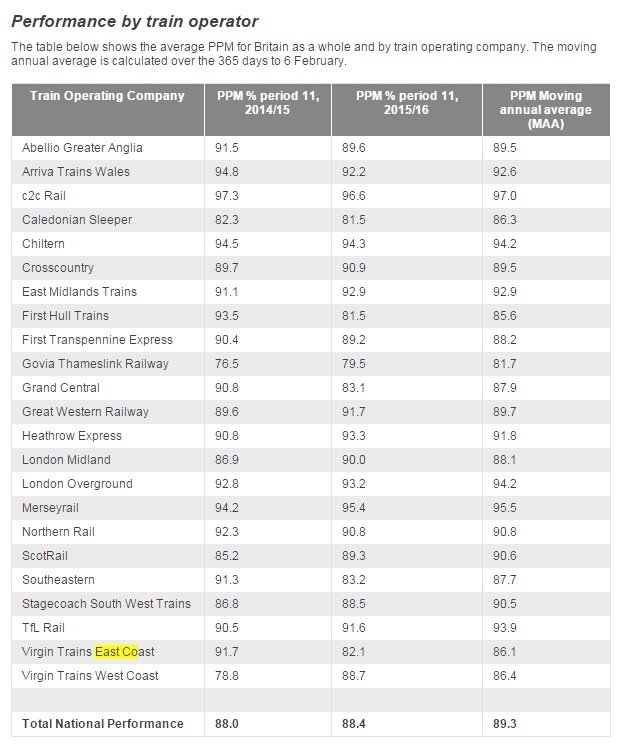15.02.16
Open access TOCs see steep falls in performance during period 11
The non-franchised sector saw a sharp decline in performance last month, with Grand Central and First Hull Trains PPM figures dropping by eight and 12 percentage points respectively compared to last year – despite both topping the recent National Rail Passenger Survey.
The Network Rail data, which covers operator performance for 10 January to 6 February (period 11), showed sharp deterioration across the two TOCs, with Heathrow Express being the only open access operator with an improved performance.
First Hull Trains saw the largest drop of all operators, with its PPM standing at 81.5% compared to 93.5% during last year’s period 11. Its delay and cancellation figure was also the highest of all operators, standing at 6.5%.
The operator also reported a particularly bad month during period 10, with a performance figure of 76.4% - significantly below the 85.9% recorded in the previous year. Almost 14% of its services at the time had also been delayed or disrupted.
Grand Central followed closely, with a PPM of 83.1% compared to 90.8% last year. Its delay and cancellation figure, however, stood unchanged at 4.3%.
A Grand Central spokesperson told RTM: "A number of temporary speed restrictions affected PPM in the period. We continue to work with Network Rail to ensure sustained improvement."
While these figures didn’t represent the worst performance data across the entire sector, they were amongst the sharpest falls within just one year. It also harshly contrasted with the high levels of passenger satisfaction recorded by both operators in the latest Passenger Survey, with First Hull actually topping that list – the largest of its kind in the world – at a rate of 97%.

Only two other operators, Virgin Trains East Coast and Southeastern, experienced comparable drops in performance in this latest period. The former saw a drop of 9.6 percentage points since last year to 91.7% now, and the latter a drop of 8.1 percentage points to 83.2%.
Virgin Trains East Coast – which took over the east coast route in March last year and, just today, introduced 42 new services between Edinburgh and London – also saw a rise in delays and cancellations during this period, with nearly 6% of its services either late by over half an hour or cancelled entirely.
Its sister franchise, Virgin Trains West Coast, saw an opposite pattern, with its delay figure dropping from 7.9% to 2.2%, and its PPM rising from 78.8% to 88.7%.
But despite their poor performance, the reasons behind delays and faults across Virgin Trains East Coast, Southeastern and Grand Central services were more accountable to Network Rail. In Virgin Trains’ case, for example, 77% of faults and delays of three minutes were attributable to Network Rail, compared to the national average of 59%.
Overall, the national PPM figure was of 88.4%, just very marginally above last year’s figure of 88%.
(Top image c. mattbuck)